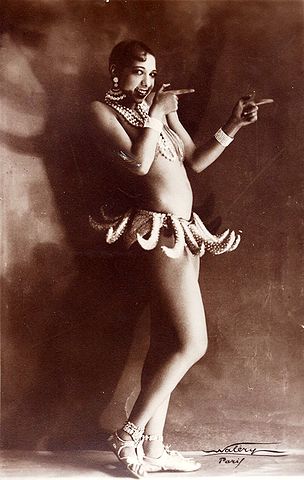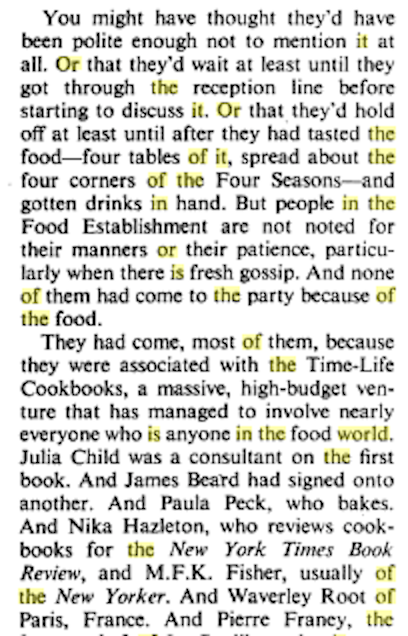 Originator of the term ‘food porn’, Molly O’Neill describes the world of food as it stands today. This article was written in 2003 in the Columbia Journalism Review, but it clearly is as thorough and as true as it was on the day it was written.
Originator of the term ‘food porn’, Molly O’Neill describes the world of food as it stands today. This article was written in 2003 in the Columbia Journalism Review, but it clearly is as thorough and as true as it was on the day it was written.
On a balmy May evening in 1997, I was at a bookstore in Santa Barbara, California, signing copies of my third cookbook. It wasn’t my best book, and nearly every chapter of it had previously appeared in my food column in The New York Times Magazine. Nevertheless, nearly two hundred people waited to pay me homage as well as $26.95 for the book.
The magazine was one of the most powerful platforms for food writing in the nation and, to the people in line, I was a rock star. My mother, a sensible Ohioan, was with me that night and she was appalled. She stood near as fans gushed admiration for my prose and recipes.
Finally, as if unable to contain herself another second, my mother interrupted one woman’s compliments and asked: “Do you actually cook that stuff?”
“Of course not,” replied the customer, who looked like my mother, tall, lean, with a white cap of stylishly coiffed hair. “Every week I cut them out of the magazine and promise myself I will cook them. Don’t we all?”
Continue reading this story at alternet


